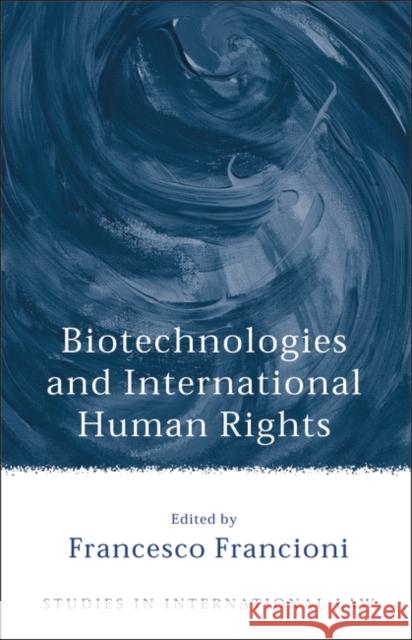Biotechnologies and International Human Rights » książka
Biotechnologies and International Human Rights
ISBN-13: 9781841137032 / Angielski / Twarda / 2007 / 438 str.
With its specific focus on human rights, this book follows and complements the previous volume Biotechnology and International Law (Hart, 2006). The book is the result of a collaborative effort with the purpose of discussing the extent to which current activities in the field of biotechnology can be regulated by existing international human rights principles and standards. It also discusses what gaps, if any, need to be identified and filled with new legislative initiatives. Instruments such as the UNESCO declarations on the human genome (1997) and on bioethics and human rights (2005) have become part of customary international law. But, what is the relevance of these instruments with respect to traditional concepts of state responsibility and the functioning of domestic remedies against misuse of biotechnologies? The book analyzes what legislative initiatives are needed, and examines the pros and cons of a race toward the adoption of new ad hoc legislation in an area of such rapid technological development. The risks of normative and institutional fragmentation involved in the proliferation of different regulatory regimes are also analyzed. The various contributors ask what are the core human rights principles that define the boundaries of legitimate use of biotechnology? They also question what is the legal status of human genetic material and what are the implications of the definition of the human genome as 'common heritage of humanity' for the purpose of patenting of genetic inventions? These and other questions are the focus of a fascinating collection of essays which help to map this emerging field of inquiry.











